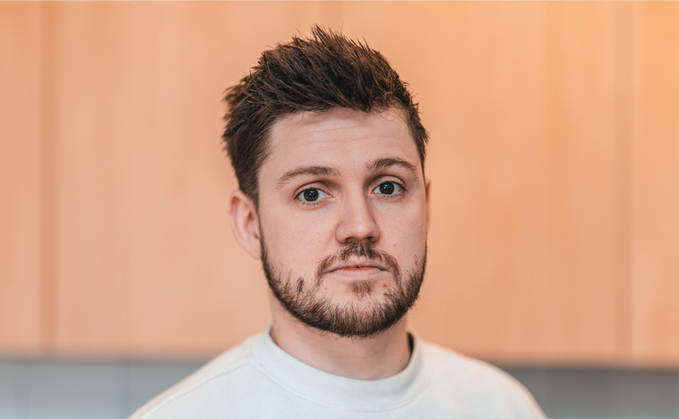I remember it vividly. A sea of black and white and low humming voices, almost all were Caucasian… and male. This was the first awards industry event I attended 25 years ago and as it spread out in front of me, I felt how imposing, authoritative and unavailable it was to me. I did not belong, I was an imposter.
In many respects, business and society more generally have come a long way in the 25 years since then. The media industry, for example, has long had a reasonable gender balance in its workforce, albeit not always at the top. Incisive Media, where I’ve worked for the past twenty years, is as good as anyone in this regard. Our world is far from perfect, but it’s a veritable Heinz 57 compared to the industries we serve as a leading business to business media company.
In so many sectors, gender imbalance was just normal. Everyone accepted that men would hog all the senior roles and throughout their operation, there would be more men than women, not to mention more white faces than ethnic minorities.
It was no surprise, then, that business to business ‘Award Programmes’ brought out the worst in those organisations. They were meant to be a celebration of an industry’s crème de la crème, anointing stars and creating new heroes. Companies saw them as a key way of measuring standards in an industry or profession and well sought after recognition for companies, teams or individuals. They generally culminated in a glamorous gala dinner at a top venue, usually a big city, premium hotel. And, of course, they were – and still are – celebratory, boozy and great fun. However, they fundamentally ignored a large portion of unseen talent due to normalised business structures.
Shocking as this may sound, our predominantly female team would hold internal briefings about how to say ‘no’ to men who thought we were part of the entertainment. We would politely tell them to keep their hands to themselves, offer each other support and advice on how to be courteous but forceful, all the time being conscious that we also had to ensure we did not upset a client. One deliberate tactic was to be together in groups when dealing with drunk men, while helping them to get taxis home to their – no doubt – ignorant partners.
Even as I write this, I am staggered, and a little embarrassed, to say that we all accepted this as normal. Each and every female events professional from this time carries their own scars. It was unsaid, but all staff knew that clients had special dispensation and if they or their guests didn’t get too out of control or too lairy, we would let low level harassment slide. This was our standard.
Looking back over my career, I once had a boss that used to make me feel extremely uncomfortable, regularly breaking into personal space, constantly sharing obscene and derogatory jokes and comments, with his sport being to see how you reacted. Again, it was an accepted part of a young woman’s working life. Now being an awards judge across many programmes and having read thousands of awards entries, I can see that this experience was commonplace.
And then it changed. Like many, I did not know the name Harvey Weinstein, but when the story broke in 2017 and the #MeToo campaign gathered momentum, something clicked inside many working women, myself included.
I wasn’t alone and I noticed a sea change in attitude from female colleagues and industry contacts. Enough was enough, time to make a stand. I figured the only way this was going to genuinely change was to make sure the future was as representative for our daughters as it is for our sons. In many ways, I was lucky. Working in media provides a platform to influence and it became apparent very quickly that the standout method to deliver some semblance of equality was to showcase women’s talent, create female superstars, provide mentorship and build leaders that inspire.
Incisive Media has a large event portfolio and a ruthlessly efficient event production machine, the perfect engine to create the product to showcase the best that women have to offer. The ‘Women In’ award series was born.
One question needed to be answered, though: why make special awards for women? The counter-argument to a dedicated awards programme is that surely women should be compared equally to men? Aren’t these shows actually derogatory to women? These arguments were made by a few men and even some women. To be fair, this is why these award programmes were not prevalent a few years prior, but in my view, #MeToo changed everything.
Beyond the recognition an award win offers, my vision was to create a network for women within these industries and by launching the awards, highlight the lack of visibility these women have previously experienced. It was also important to provide a focus for changing attitudes in the workplace so that if your boss made crude jokes or advances, you did not have to get on-board or jump ship. Concept to launch in less than six months, the ‘Women in IT Excellence Awards’ and ‘Women in Investment Awards’ were born.
I’ve shared the history, the need, the positioning and the catalyst, but what about the recipe?
Many of you will know the delivery methods of running an award programme, so I won’t bore you with the detail. You know the drill. Launch 6-10 months out, gathering data, creating captivating content, mesmerising marketing and swift systems. Gain momentum and backing from industry bodies, gathering senior, independent judges and advocates, securing sponsors and having the confidence to commit to expensive contracts with multi-billion-pound hotel groups for a series of events which may not even get off the drawing board. Fly by the seat of your pants.
So, what did we learn? Timing was key. Gender diversity was a burgeoning topic in boardrooms across the country, so we had the need. We launched quickly and went for a major sponsor. HSBC Global Asset Management were approached for Women in Investment and it was immediately apparent that our targeting was accurate. Their desire and focus to make a difference matched our own, quickly coming to agreement on a deal, but not for a single year; this was a three year sponsorship deal, on a launch product. Unheard of.
Andy Clark, CEO of HSBC Global Asset Management, said: “HSBC GAM are delighted to partner with Investment Week and Women in Investment Awards. It really shows our partnership in terms of raising the debate in gender and diversity.”
Needless to say, the inaugural ‘Women in Investment Awards’ were an absolute, sure-fire hit. A complete sell out, a crackling atmosphere (of men and women), a visual rainbow across the audience, support for everyone, those on shortlists who didn’t win congratulating those who did. The precise opposite of my first industry event 25 years before.
We launched Women in IT Excellence and Women in Investment in 2017, then over the next two years: Women in Pensions, Women in Channel, Women in Financial Advice, Women in Protection, Women in Investment Italy and Women in Insurance. This year, we are launching Women in Law, Women in Accountancy & Finance and Women in Investment Spain.
Oh, then we decided to launch, Women in Tech Festival, Women in Investment Festival and Women in Insurance Live. It won’t surprise you that there are more to come.
These are the cumulative metrics for the award programmes since launch: 8,250 attendees, 375 judges, 10,879 nominations, 5,344 award entries, 106 sponsors and 94 industry partners. For recent awards ceremonies, we have measured our social drive, resulting in 115,000 impressions and 2,500 engagements through Twitter and LinkedIn for individual events.
And, most importantly, 360 winners and 145 highly commended winners. That’s 505 super talented standout women in our industries, empowered, acting as ‘taliswomen’ for their colleagues, clients, friends and family. Incisive Media is a better place for it too and as a business, is thrilled to have made such a difference to the industries and markets we serve. This tidal wave of female talent has such momentum now and while still a way to go, it’s unstoppable and business, as well as society, is better for it. More colourful, multi-dimensional, accepting and tolerant and far more agile and creative while equally determined and balanced.
And personally, I no longer feel an imposter. It’s only taken 25 years.
This is ‘the Women In’ awards recipe
Pre-launch (32 weeks):
Launch (26 weeks):
1st round of judging (16 weeks):
Judging day (12 weeks): This is followed up with a face to face judging meeting to decide the winners / highly commended.
The Awards (0 weeks): Delivery!
For more information about Incisive Media’s Women In events see the links following:



